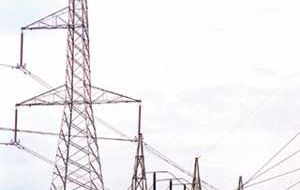MercoPress. South Atlantic News Agency
Pacific Ring Countries to Make Energy Sharing Plans

Future cooperative agreements among the countries of the Pacific Ring could reduce electricity costs in Chile’s far north by up to 25 percent. Chile’s energy costs are currently the highest in the region.
An ongoing United Nations study, moreover, suggests that prices would fall even more if Bolivia were involved in the agreement.
The project involves an investment of US$950 million and would require the installation of 1,576 miles of electric cables. The U.N. report has suggested that integration could generate a total of US$3 billion dollars from 2014, when the project is expected to begin, through 2022.
President Sebastián Piñera has been searching for ways to lower the high cost of energy in Chile, and energy-sharing plans with other nations in the region may be the answer.
Columbia has rich reserves of sources generating electricity production including oil, natural gas, coal, and hydroelectric power, and President Piñera is keen to acquire some for Chile. Over the next decade Columbia is projected to increase its production of hydroelectric power from its level of 66 percent of total output up to 72 percent.
This has added benefits for Chilean companies who, under current law, are required to provide 5 percent of their energy output from renewable sources. President Piñera has likewise set an ambitious 20-20 goal of producing 20 percent of the nation’s energy through renewable sources by 2020.
There are still several issues to be worked out between the countries before the project takes off.
There is currently no mechanism for pricing electricity sold internationally, and with the high start-up costs involved in this project, nations need to find a pricing mechanism before 2014.
According to Vivianne Blanlot, formerly of Chile’s National Energy Commission, however, political differences will be the hardest to overcome. There is a fear that political instability could result in countries having their electricity supply cut.
“Physically or commercially, it is not a problem, the difficulty is in getting governments to agree.”
While companies in most participating countries run on an entirely commercial basis, the Ecuadorian government often subsidizes companies within its borders.
Blanlot also warned that although the project should start in 2014, it could be a decade before it becomes truly effective. “Countries who have truly integrated their energy supplies, such as Canada and the United States, or the European Union, have been working on it for decades.”
By Mark Briggs - Santiago Times




Top Comments
Disclaimer & comment rules-

Read all commentsWatch out guys, there can be a Tsunami :-(
Jan 25th, 2011 - 10:41 pm 0Commenting for this story is now closed.
If you have a Facebook account, become a fan and comment on our Facebook Page!